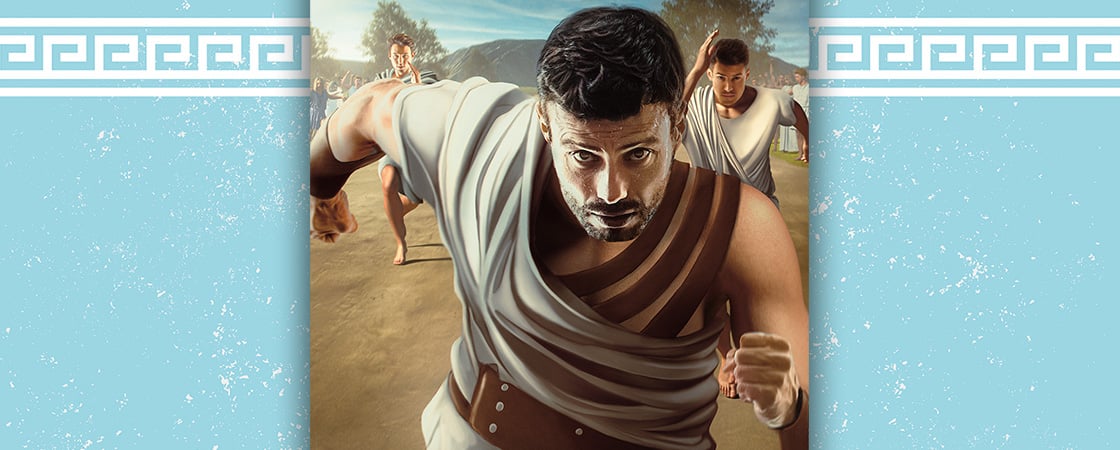Inhale. Exhale. Sweat is dripping down your face. Your heart pounds in your chest. In the distance, the finish line waits.
Who are you? You’re an athlete about to compete in the first-ever Olympic event: a race.
The sun beats down on your back as your toes sizzle in the sand. Like the rest of the athletes, you’re barefoot! A crowd of thousands of people cheers with excitement. The competition is about to begin.
Will you go down in history as an Olympic champion?
Inhale. Exhale. Sweat is dripping down your face. Your heart pounds in your chest. The finish line is in the distance. Who are you? You’re an athlete about to compete in the first-ever Olympic event: a race.
The sun feels hot on your back. Your toes burn in the sand. Why? You and the other athletes are all barefoot! There is a crowd of thousands of people nearby. They cheer loudly. The race is about to begin. Will you win and go down in history as an Olympic champion?

